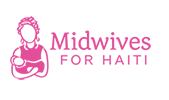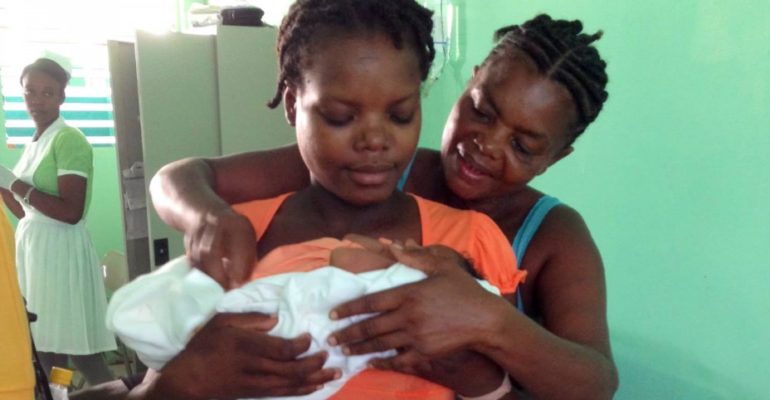In honor of World Breastfeeding Week, we are sharing this powerful story from a volunteer:
Gearing up and preparing for my trip, I wanted to teach as much as I could but knew I had to be very cautious with my approach because I wasn’t sure how well it would be received. A large part of the job of being an Lactation Consultant is to meet mothers where they are emotionally. It’s my job to assess the situation and see how I can be the most helpful without overwhelming or undermining the mother.
I learned a lot of lessons in Haiti about how they view their newborns. I didn’t realize the extent of the detachment they would have from their baby- which is probably their way of protecting themselves emotionally if there is a tragedy.
On the way to St. Therese that first day when we were just going to be getting a tour, I started doubting how I could be useful… alongside of several experienced midwives and a highly skilled labor nurse–really, what in the world could an LC bring to the table. I think I even said something nervously to Mary on the way in as we started the tour.
I was stunned when as we entered the labor and delivery area, met with 4 women lying on the floor, the sounds a very vocal woman delivery in the background and a small baby that was wrapped in a sheet on the floor all by itself.
Seeing the baby on the floor is an image burned in my mind because I honestly thought the baby was dead and discarded on the floor. I have seen death in the hospital I work at, it’s not ever easy but the fact that the baby was on the floor, alone, just made my heart sink.
I picked up the baby and was relieved to find the baby although cold, breathing, and alive! The baby immediately urinated all over me, good sign! His mother was lying across the room from him on the floor in the same sheet she delivered on 24-hours prior, with an empty IV that had held magnesium and her head was cradled on her mother’s lap. I knelt down to put the baby against his mother to warm the baby up. Through Shirley (my interpreter), I found out from the grandmother that while the baby had been crying all night, the family had not let the baby eat because the teenage mother had been having seizures and they thought that if the baby nursed that the baby would also get seizures. I told her that the baby was safe to nurse, but the mother was resistant to nurse her baby because she couldn’t see anything and she didn’t want to sit up. The grandmother was worried that her daughter was now blind.
After the grandmother was reassured, I had her put the baby skin to skin and told her that it was important that the baby get something to eat. I’m positive that the grandmother thought I was crazy putting the baby skin to skin with her, but I was worried about the baby!
I told the grandmother that she could express the mother’s colostrum onto a spoon and given to the baby. I explained how life giving the colostrum was and how she needed to help her daughter by expressing the daughter’s colostrum and spoon feeding the baby every hour.
I followed up on the mother the next day. The baby had latched throughout the night and the mother was improving. By the third day, the other mothers next to her bed were the first to tell me excitedly how well the baby was eating! They knew what I wanted to hear and it made me happy that they knew how important this was!
The photo was taken on the last day before the mother and baby were discharged. I love how the grandmother was proud of her daughter and the baby, but also how the mothers that were next to her had seen her recuperate and seemed to cheer her on.
This was not what I had expected as my introduction to Haitian healthcare–but it was a good example how quickly things could go wrong. I realized that the baby was really secondary because if something happens to the mother, then the baby doesn’t really have much of a chance. Education needs to happen prenatally, and not on the floor in post partum after there is a crisis.
– Jennifer Straub, LC

